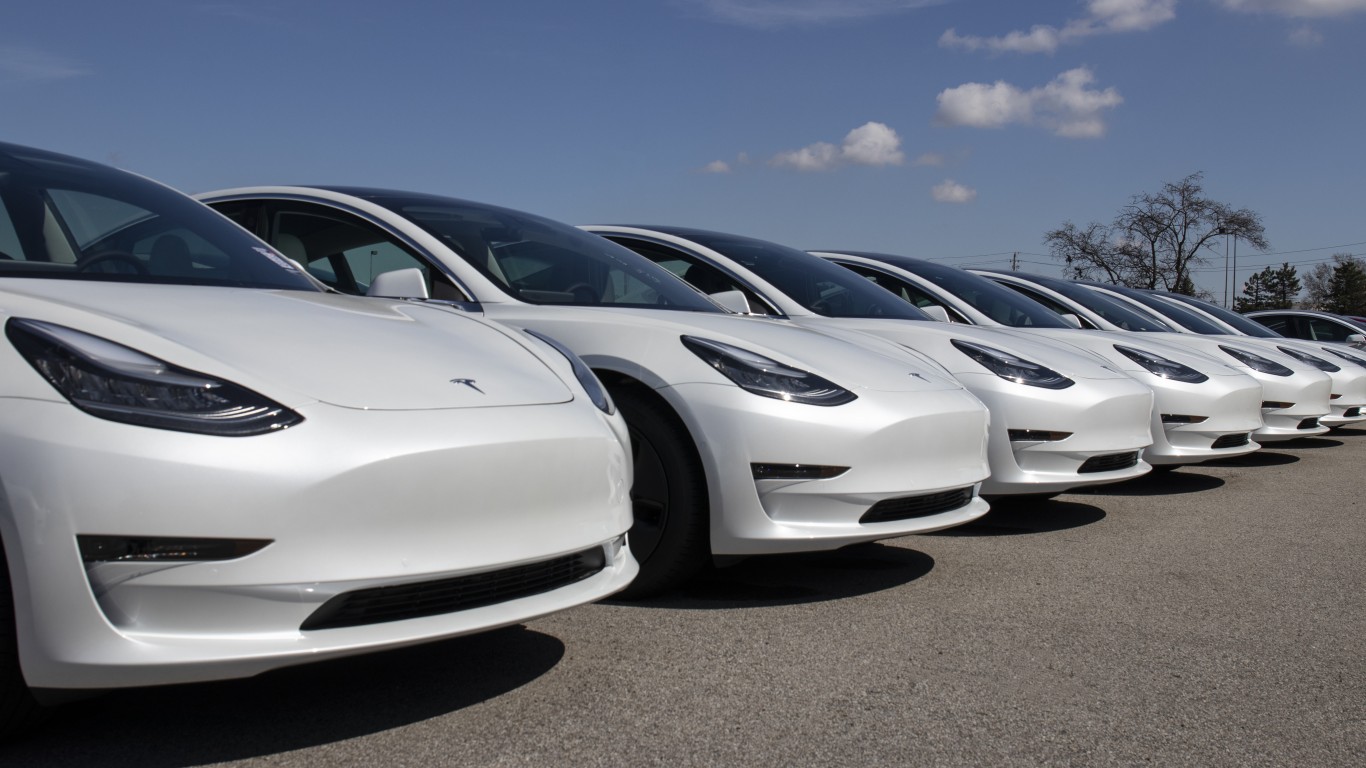
As one of the most popular compact crossover SUVs around, the Ford Escape is very important to Ford. At its high in 2017, the Ford Escape sold as many as 308,000 models while sales typically average between 137,000 and 183,000.
Overall, these are strong models in the compact crossover segment and the Escape is a solid choice for customers looking for a smaller SUV small enough for city life while offering enough storage for a road trip. In total, more than 5 million models have been sold since Ford first started selling the Escape.
Avoid: 2005

Regarded as the Ford Escape’s second worst model year, the 2005 model was unfortunately listed as a definite vehicle to avoid. With over 2,000 NHTSA (National Highway Transportation and Safety Administration) complaints, plenty of evidence supports the idea that 2005 is a year to avoid.
The two most common problems were related to engine issues, as many Ford Escape 2005 owners suffered engine shutdowns while driving. Alternatively, some drivers had the gas pedal get stuck while driving. Both of these were serious life-threatening concerns. Oddly enough, it was noted that these problems were more common in warmer weather for Ford Escape owners.
Avoid: 2008
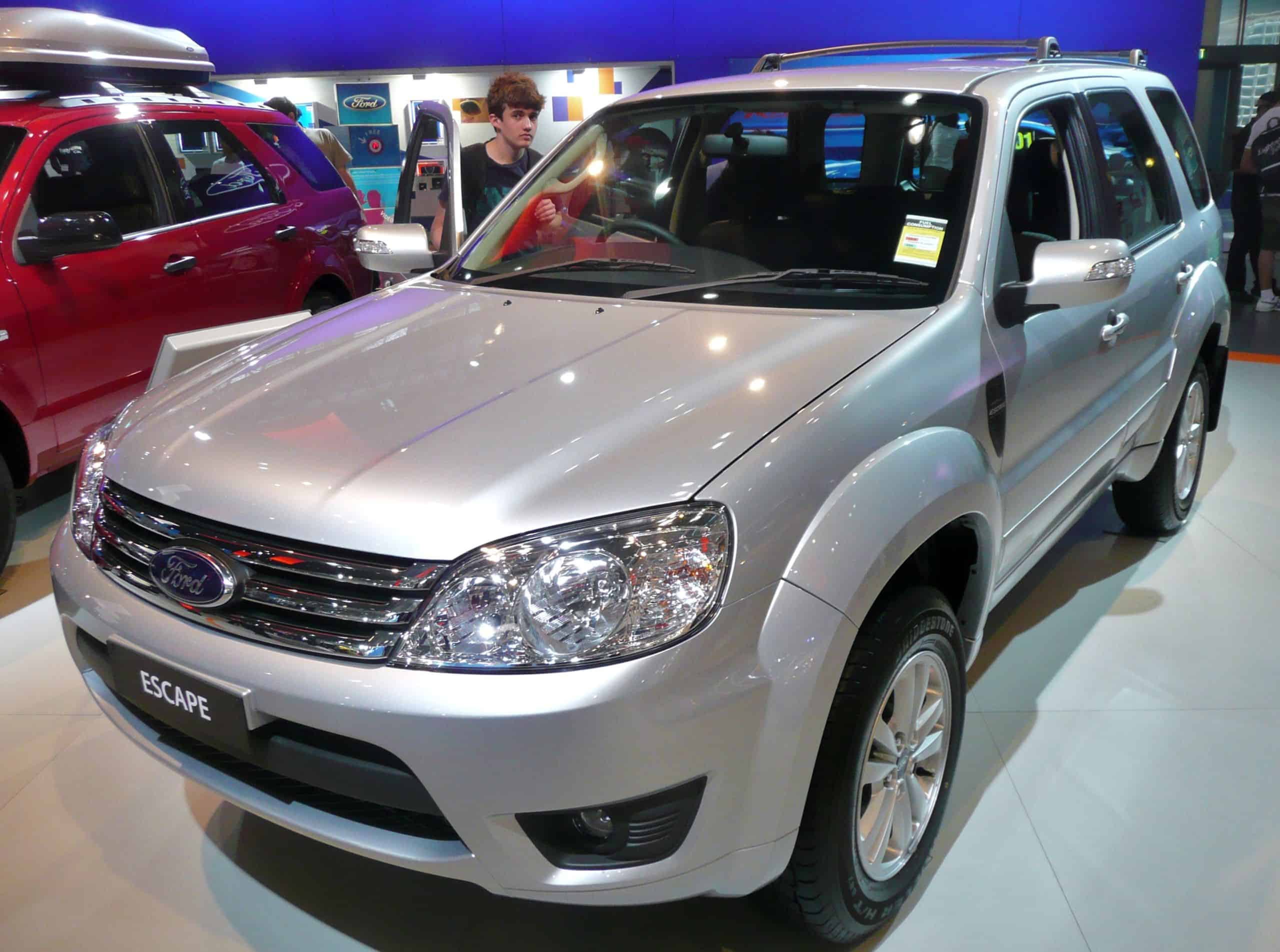
Suffering multiple transmission headaches, the 2008 Ford Escape had enough issues to place it on the models to avoid list. With over 2,000 NHTSA lists, the 2008 Ford Escape was regarded as the worst model year Ford had with this vehicle. This claim was supported by over 1,085 NHTSA complaints focused solely on power steering failures. Costing upward of $1,200 to fix, customer frustration with the Ford Escape was at an all-time high with the 2008 model.
In addition to steering problems, braking was another focal point with the 2008 Ford Escape. This model year introduced several costly repairs that saw customers pay upward of $632 just for regular maintenance. While this was down from the 2005 model, it was still among the highest in the Escape’s history.
Avoid: 2009
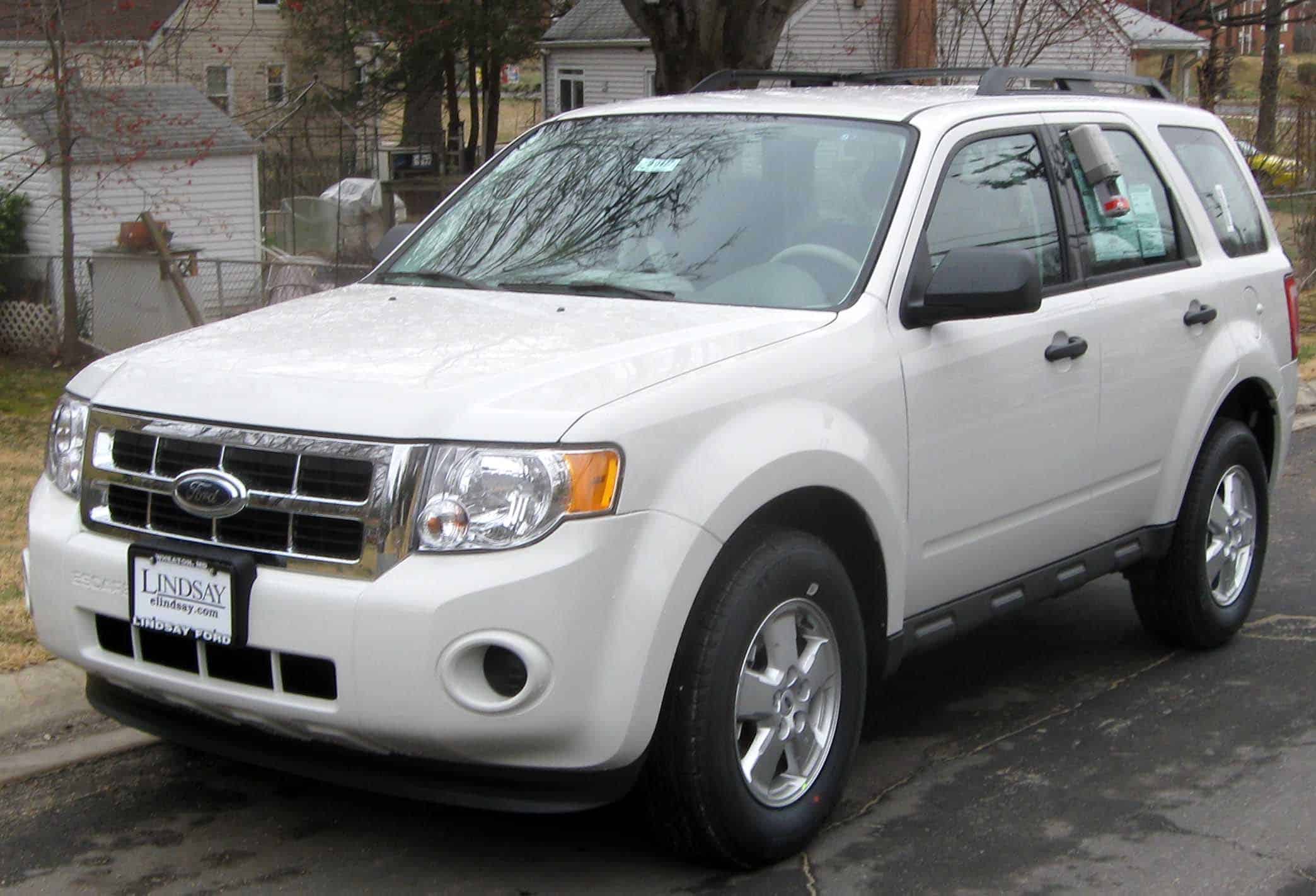
If you look at the 2009 model year for the Ford Escape, things were looking better in 2008, but still not good enough. Unfortunately, 2009 saw a continuation of the 2,000 plus NHTSA complaints the Ford Escape received the year prior. According to FIXD, overall reliability for the 2009 model rated only 4 out of 10. One of the biggest complaints that year was random engine noise.
What’s worse was that these complaints covered both the 4-cylinder and V6 engines Ford had out. Another negative for the 2009 model was that the interior had not yet been updated, which meant it was outdated compared to the competition. However, 3 NHTSA safety recalls including roof leaks were the biggest strikes in 2009
Avoid: 2013
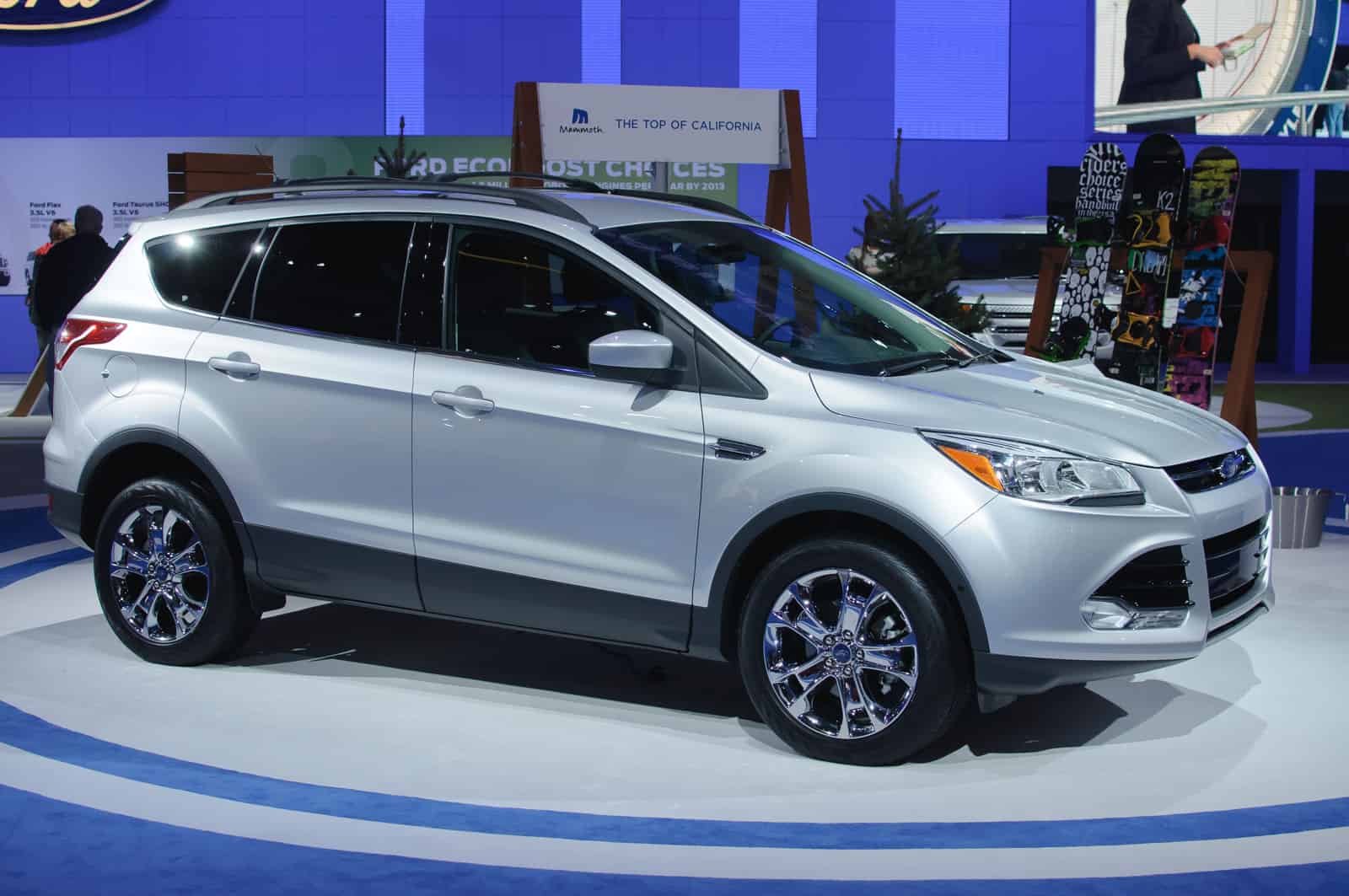
After a quieter year in 2012, the Ford Escape came back in 2013 with a whopping 3,000 plus NHTSA complaints. This was a major blow to Ford’s hope they were turning a corner in 2012 by resolving many lingering customer issues. Chief among the complaints were major concerns about the engine stalling or shutting down while driving.
As a major safety issue, this gave the Ford Escape a fairly poor reputation for buyers in the market for a used model. In addition to the engine shutting down, the check engine light would come on intermittently and even engine fires, though rare, were a chief safety concern. When you factor in transmission failure as another chief concern among buyers, the 2013 was a model to strongly avoid.
Avoid: 2014
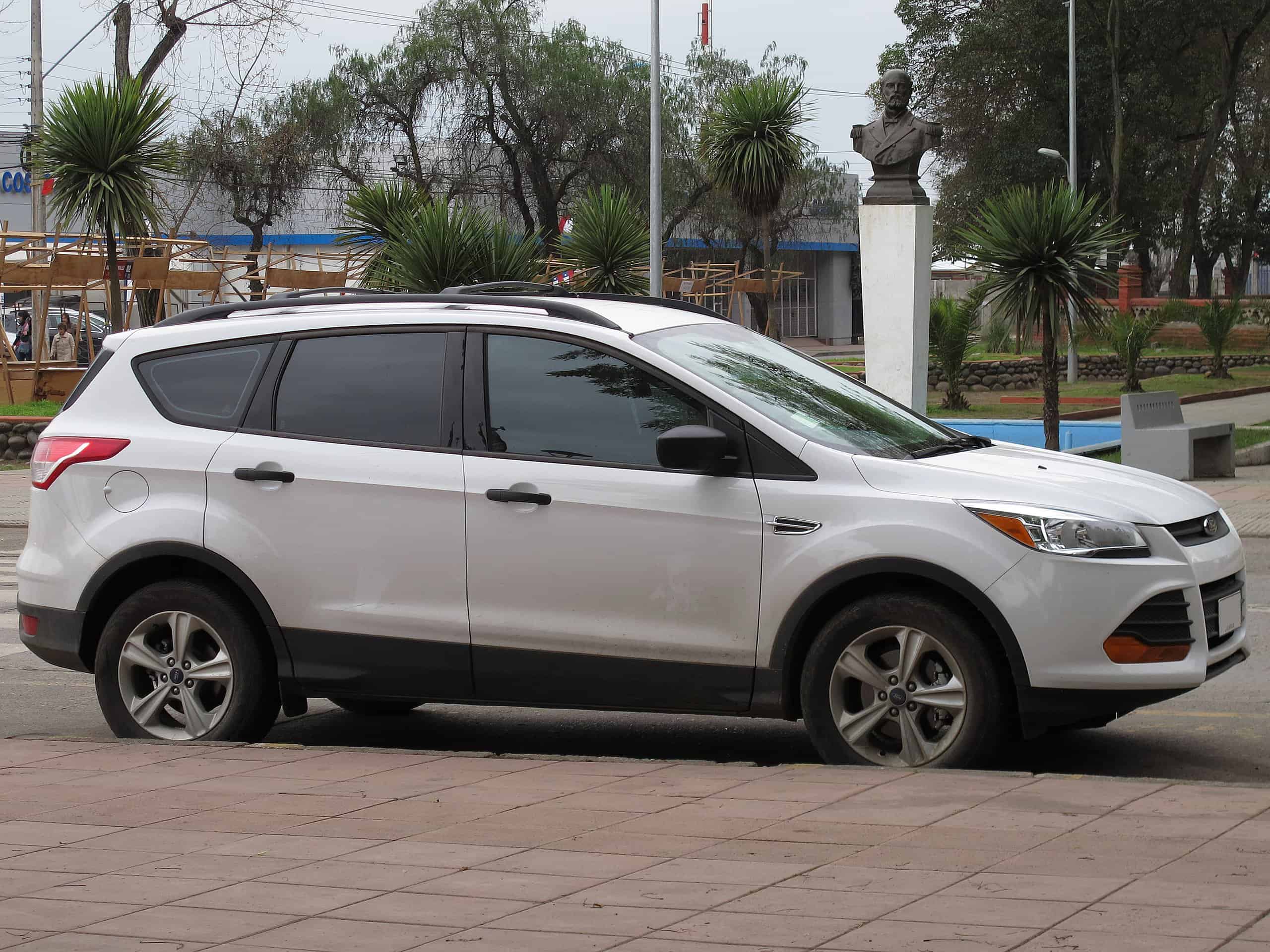
While not the recipient of the most NHTSA complaints, the 2014 model was regarded as one of the Ford Escape models to strenuously avoid. Of course, 2,000 NHTSA complaints were not something Ford took lightly, especially when engine problems continued to plague vehicle owners. It won’t come as any surprise that engine overheating and engine stalls while driving continue to be the biggest concern for buyers.
When you consider the NHTSA had issued an eye-popping 14 recalls for the Ford Escape, it’s clear there was a major concern for this vehicle. Among the recall reasons were issues with the Escape’s electrical system thanks to faulty wires or a battery that depleted too fast.
Own: 2015
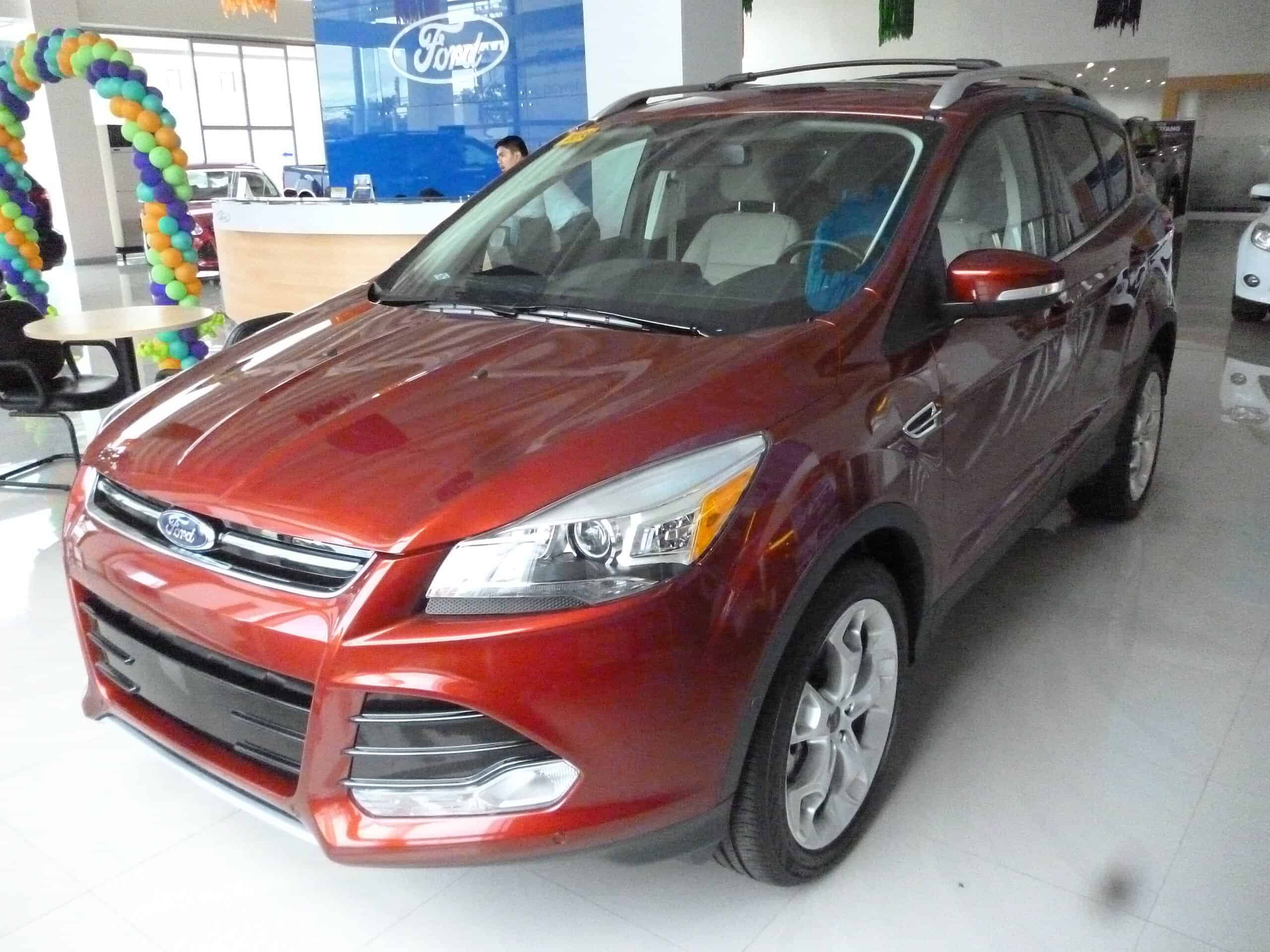
Sandwiched in between some more difficult Ford Escape model years, the 2015 model saw NHTSA complaints cut in half. While 991 complaints were still notable, it did indicate Ford was moving the Escape in the right direction. More importantly, engine issues dropped significantly as only 174 issues were noted in the 2015 model year.
Because of the rise in reliability, the 2015 Ford Escape was widely viewed as one of the best compact SUVs for families in 2015. This was likely due to the NHTSA crash score earning the Ford Escape a 4.4 out of 5. With an average cost of around $632 in annual maintenance, Ford did seem to turn a corner in 2015.
Own: 2019
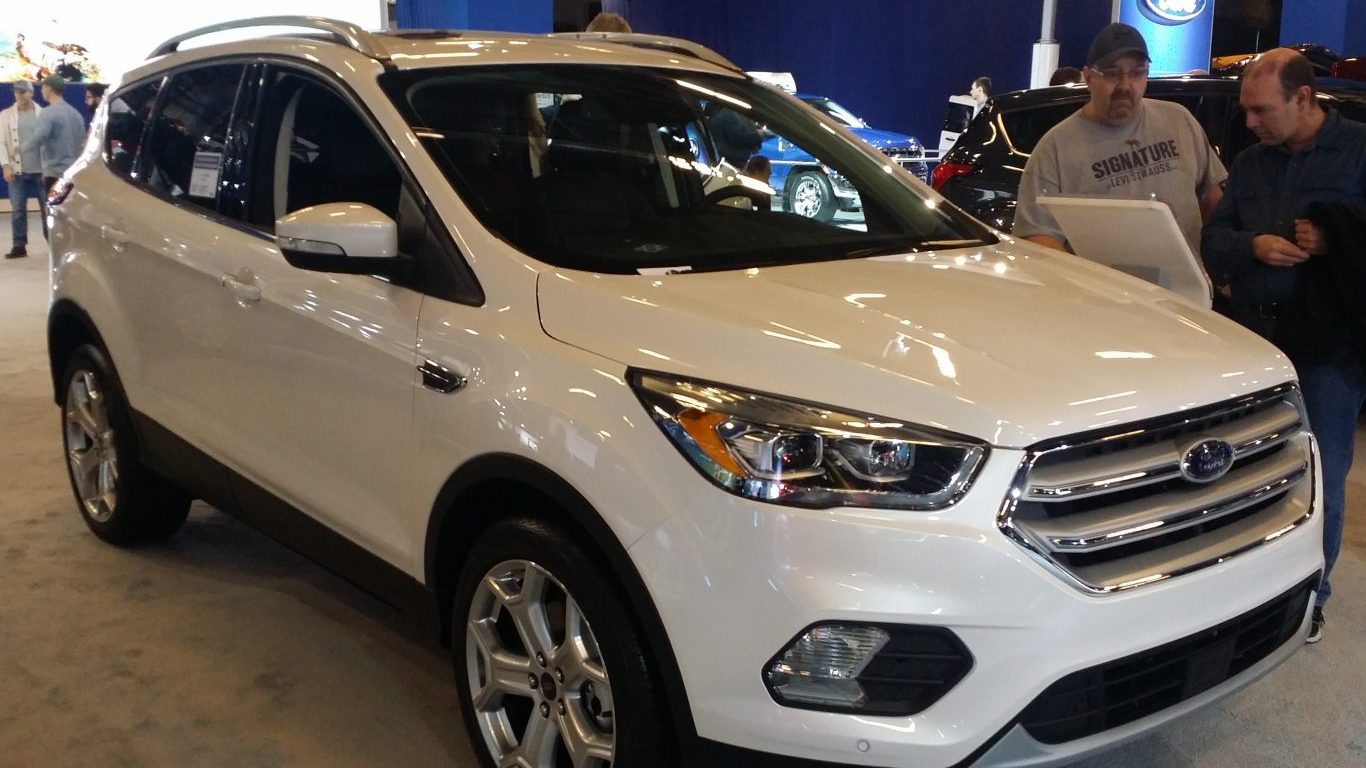
When you start getting into the more modern Ford Escape starting in 2019, things begin to look up. The NHTSA score came up to 4.6 out of 5 for crash testing, which was above average and gives this compact SUV good marks for families. Ford also increased overall towing capacity this year, added a better six-speed transmission, and increased overall cargo space.
As a bonus, the 1.5-liter engine added great fuel economy which again emphasized the Ford Escape’s value for families. The introduction of the Sync 3 infotainment system, push-button start, and one-touch power windows all added to the overall value of the Escape in 2019.
Own: 2020
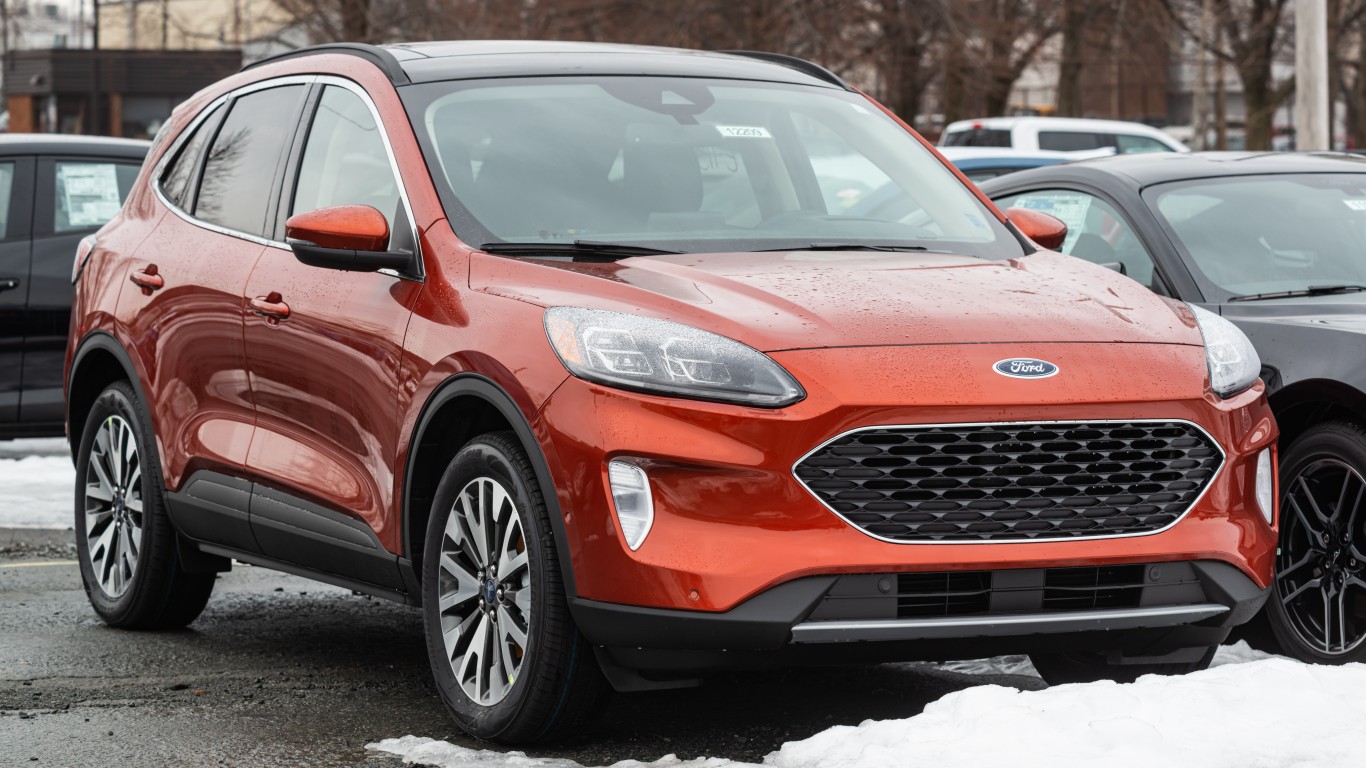
The release of a revamped Ford Escape in 2020 offered arguably the best experience Ford had delivered with the Escape in some time. The 2020 model introduced an Escape that was fun to drive and offered even better fuel economy. Still, 994 NHTSA complaints were hard to ignore, but many of these issues were limited to loud noises that could be fixed under warranty.
With this in mind, the 2020 model was still on the list as a highly recommended model to own. Best of all, the 2020 model added new safety features which increased the overall NHTSA safety rating up to 4.8 out of 5. Considering the low cost of annual maintenance and even with one NHTSA safety investigation, the overall confidence in the 2020 model was high.
Own: 2021
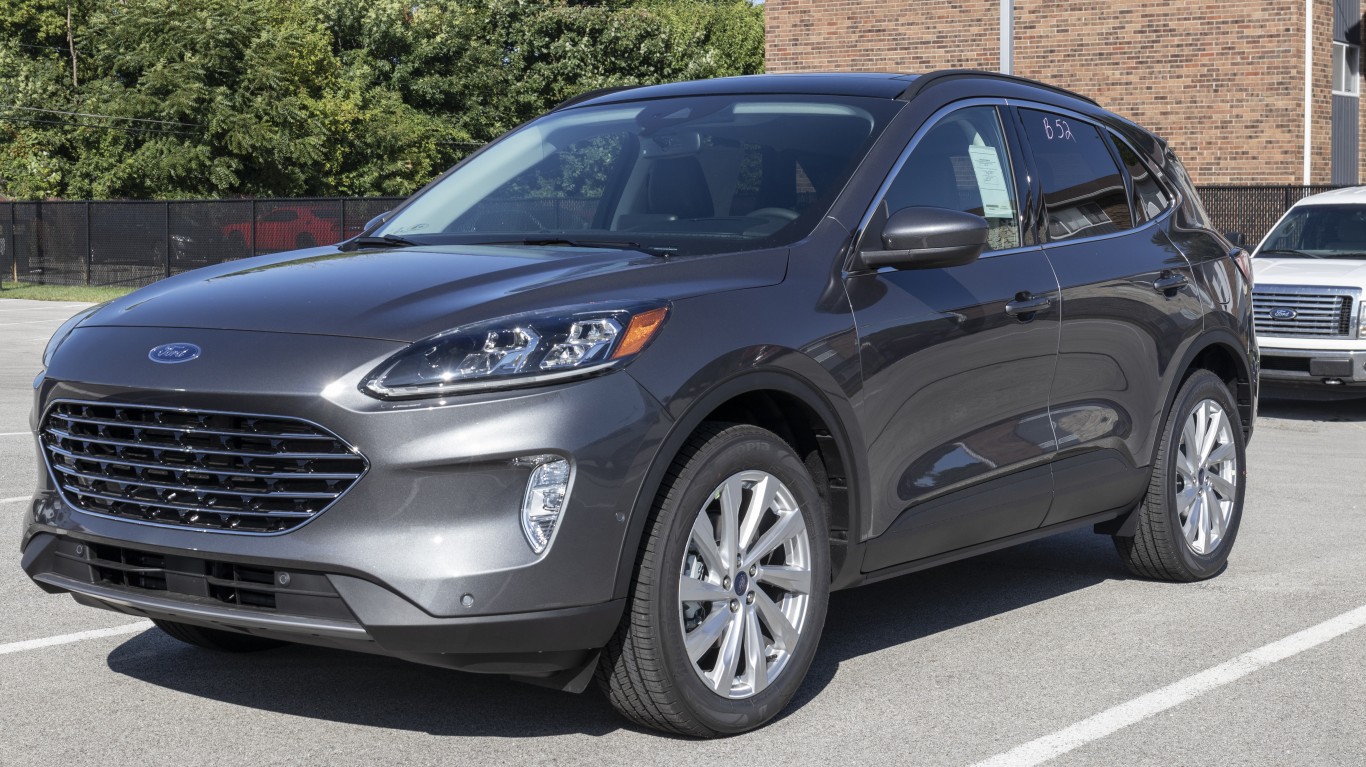
Jump ahead one year to 2021 and the good times kept rolling for the Ford Escape. The number of NHTSA complaints dropped down to only 131 total complaints. This was almost a 900% drop from the year prior, which was hard to ignore. There were almost no major mechanical or electrical defects and more importantly, no major engine issues that had plagued Ford Escape models over the last decade.
One of the best aspects for families with the Ford Escape was the total volume of 65.4 cubic feet of storage. Plus, the introduction of a hybrid model gave the Escape up to 37 mpg city driving and 44 mpg on the highway for driving. This was substantial in the compact SUV category and helped lower the overall cost of ownership down to a manageable level.
Own: 2022
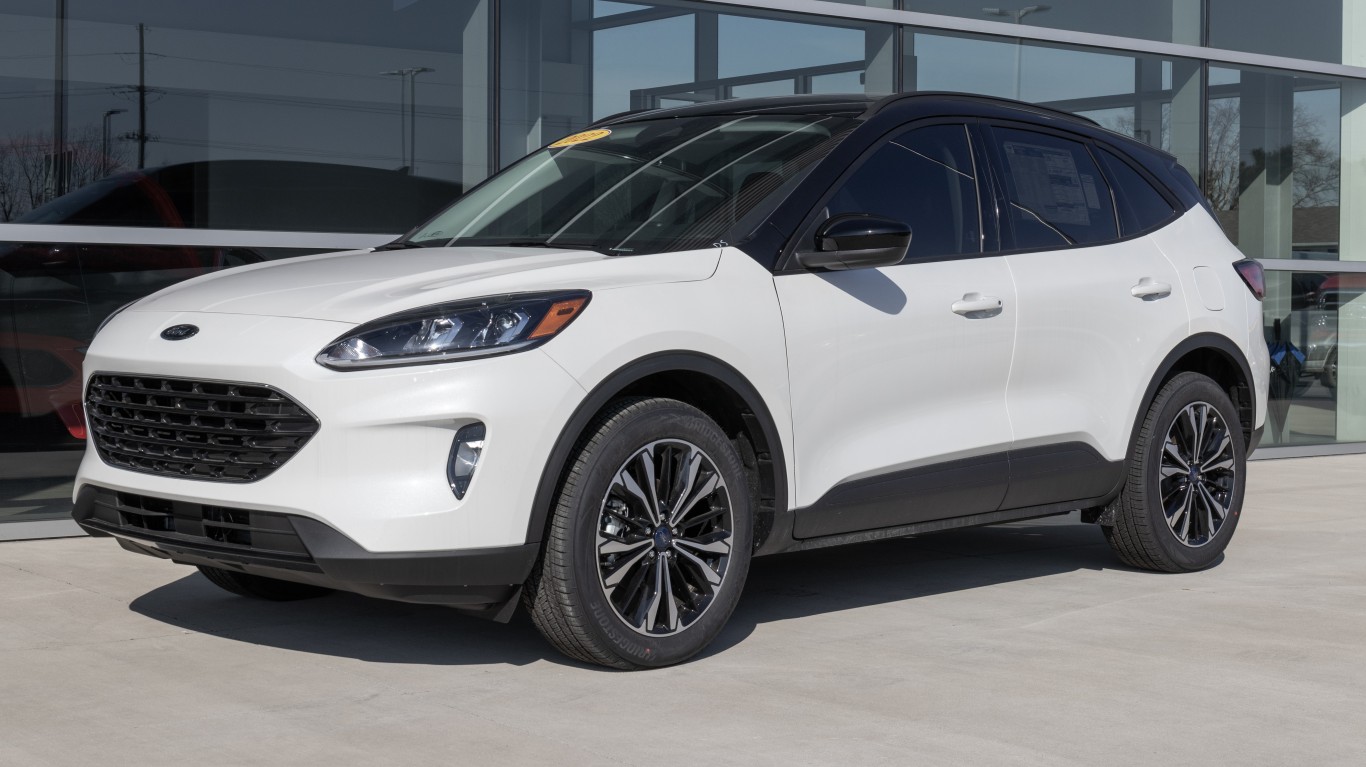
Finally, the last best Ford Escape model to own came out in 2022. The updated handling, extra spacious interior and overall practicality gave this model year plenty to rave about. The non-hybrid model was very competitive in fuel efficiency ranging up to 28 mpg in the city and 34 on the highway. Compared to other vehicles in the compact SUV market, the Ford Escape ranked near the top.
When you consider only 172 NHTSA complaints were filed in 2022, it’s once again clear that Ford had listened to customer feedback and taken action. The 2022 model looked good, drove well, and felt good to own. Even the new driver-assistance features were well-praised by customers.
Find a Qualified Financial Advisor (Sponsor)
Finding a qualified financial advisor doesn’t have to be hard. SmartAsset’s free tool matches you with up to 3 fiduciary financial advisors in your area in 5 minutes. Each advisor has been vetted by SmartAsset and is held to a fiduciary standard to act in your best interests. If you’re ready to be matched with local advisors that can help you achieve your financial goals, get started now.
Thank you for reading! Have some feedback for us?
Contact the 24/7 Wall St. editorial team.

